“In July, Gannan was in the rainy season, the ground was extremely slippery, and there were many landslides on the road. In the event of a landslide, the medical team needed to get off and walk through the collapsed section. However, in some sections, you still needed to move the big stones on the road together to let the car pass. Cars in local area were equipped with shovels, which were ready to clear the obstacles on the road at any time. In the case of a more serious landslides, the medical team needed to wait for the rescue, and after the rescue vehicles cleared the road, they could then move forward. Many road sections had steep mountains on one side and cliffs on the other side. The vehicles were driving on such roads…”
Gannan Tibetan Autonomous Prefecture is one of the top ten Tibetan autonomous prefectures in China. It has long been affected by comprehensive factors such as inconvenient transportation, poor climatic conditions and overall poor medical conditions. There is a big gap between the local people’s medical and health needs and the actual medical conditions.
In July, the large-scale medical public welfare activity with the theme of “not forget the initial heart and look back at Gannan” was initiated. Three doctors from Beijing Royal Integrative Medicine Hospital (Zhao Ling and Weng Qi from Pharmacy department, Han Jinchao from Neurosurgery department) went with medical experts from more than 200 medical institutions together and rushed to Maqu County, Luqu County, Diebu County, Zhuoni County, Xiahe County, Zhouqu County, Lintan County and other cooperative cities of Gannan Tibetan Autonomous Prefecture to conduct comprehensive screening and rescue of children with congenital heart disease, as well as screening and rescue of liver hydatid disease.
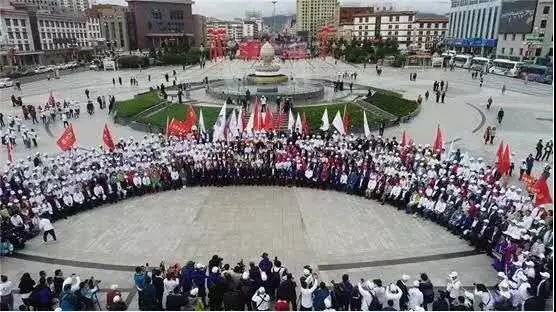
△Not Forget the Initial Heart and Look Back at Gannan
Han Jinchao, chief physician of Neurosurgery department from Beijing Royal Integrative Medicine Hospital told Jiankanghui that the medical experts who participated in this Gannan free clinic were divided into several medical teams. Gannan was in the rainy season, and the road was very difficult. The medical team that the physicians of Beijing Royal Integrative Medicine Hospital were in arrived at Lanzhou Zhongchuan Airport from Beijing International Airport and then transferred to the Gannan Tibetan Autonomous Prefecture. It was at night when they arrived, the medical team hurried to have a dinner and then took a rest in preparation for the next day to get to the destination of Diebu County. Early the next morning, the medical team rushed to Diebu County by the first bus and when entered the Diebu County, they were warmly welcomed by the local people. Because of the hardships of the journey and the pressure changes (during this journey, the average elevation of the route was 3,000 meters, and the highest altitude was up to 3,700 meters), some of the medical team’s colleagues experienced altitude sickness, but all overcame it.
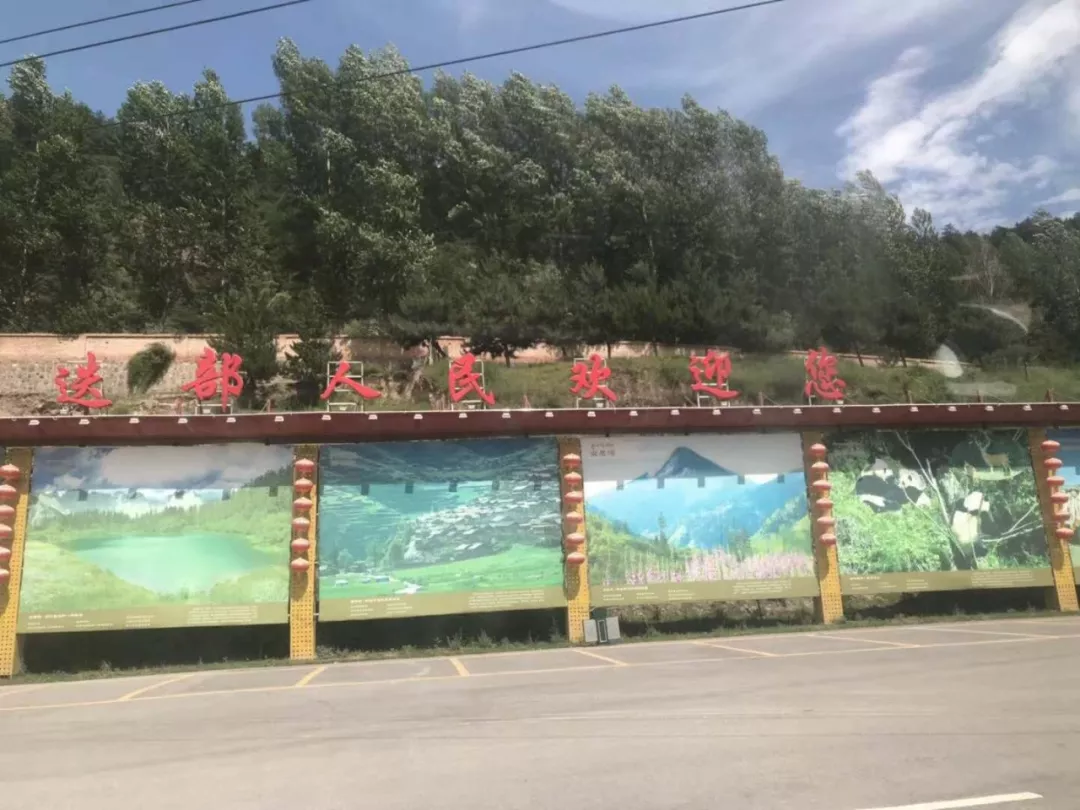
△Into Diebu County
When being asked about the impression of Diebu at that time, Han Jinchao said that although it was hard all the time, there was no day without rain, but it must be said that Diebu was indeed a beautiful place. Diebu County is located on the eastern edge of the Qinghai-Tibet Plateau. The Bailong River passes through the city. The medical group’s cars drove along the 313 National Road. The route was almost the overlap of grasslands and alpine cliffs. But in fact, there was no mood to appreciate the scenery on the road. Han Jinchao told the Jiankanghui that Gannan was in the rainy season in July, and the ground was extremely slippery and there were many landslides on the road (about 5 times).
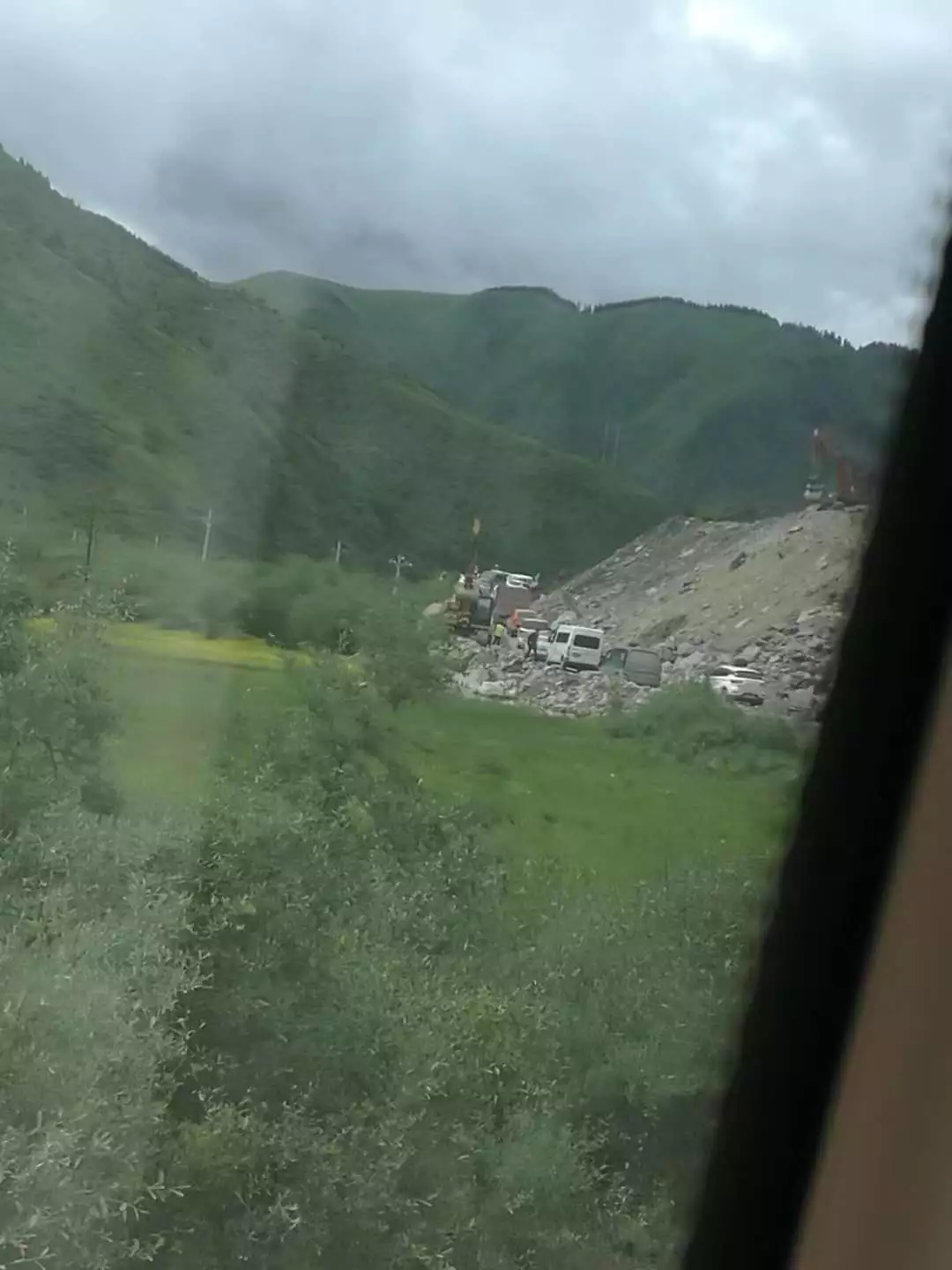
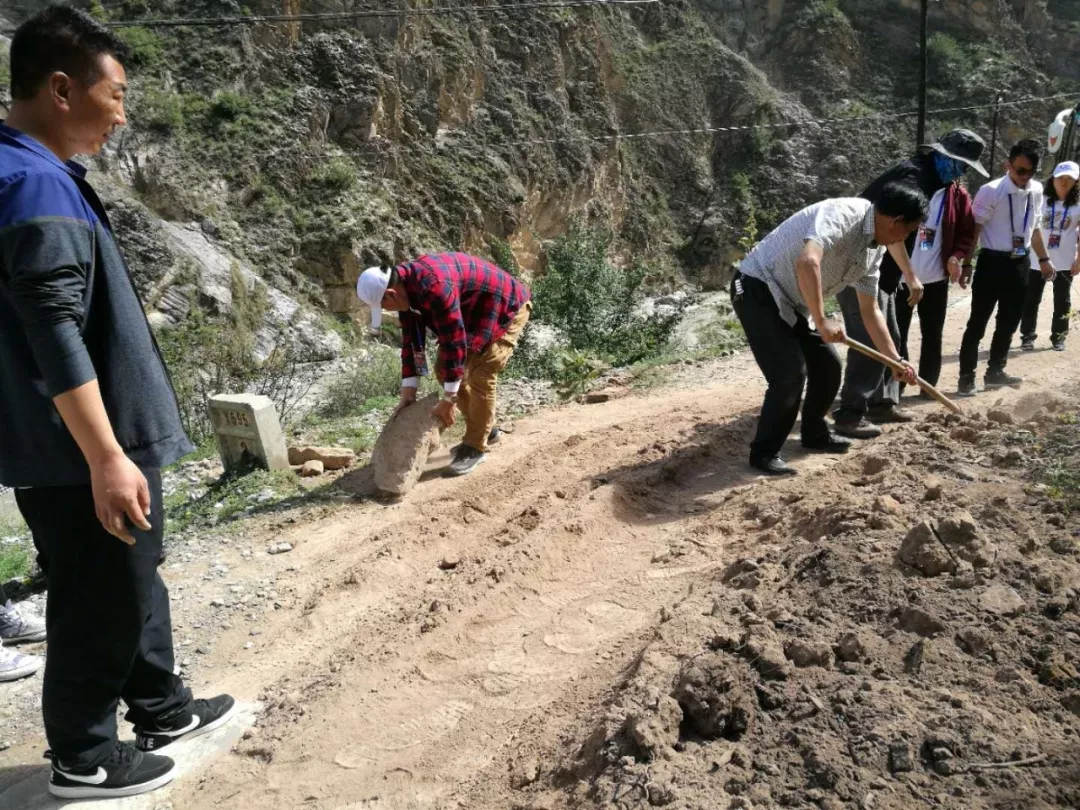
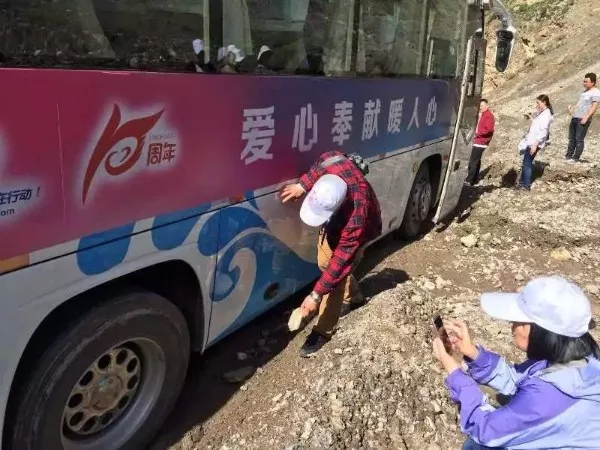
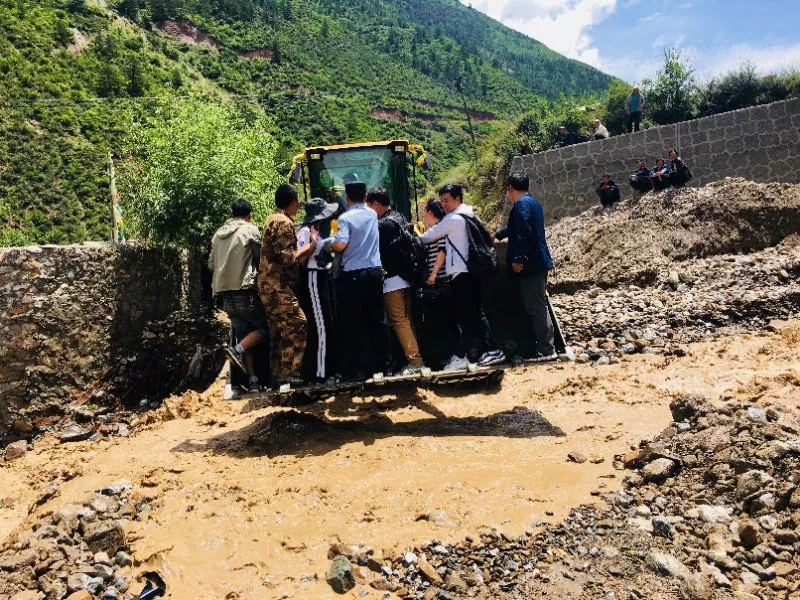
△The Medical Team Met the Landslides
Han Jinchao said that every time you went to a medical center in Diebu County, it took about three hours to drive. Due to the long drive and the hard road situation, in order to ensure the daily diagnosis, the medical team got up at 5 in the morning, and when they went back, it was often dark and extremely tired. Everyone could sleep when they touched the pillow.
The free clinic was basically done in the rain. The local farmers and herdsmen were very plain, although in the rain, they could all consciously register and queue up, then let the doctor diagnose in order, after diagnosis and treatment, finally queue up to receive the free medicines that provided by the medical team.
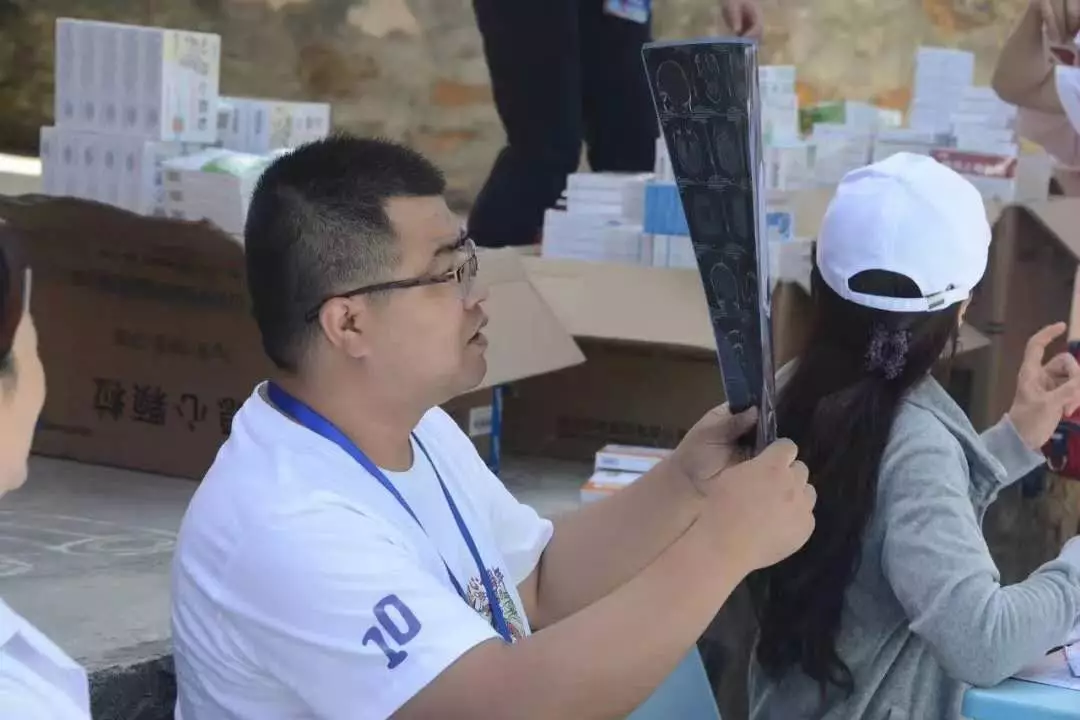
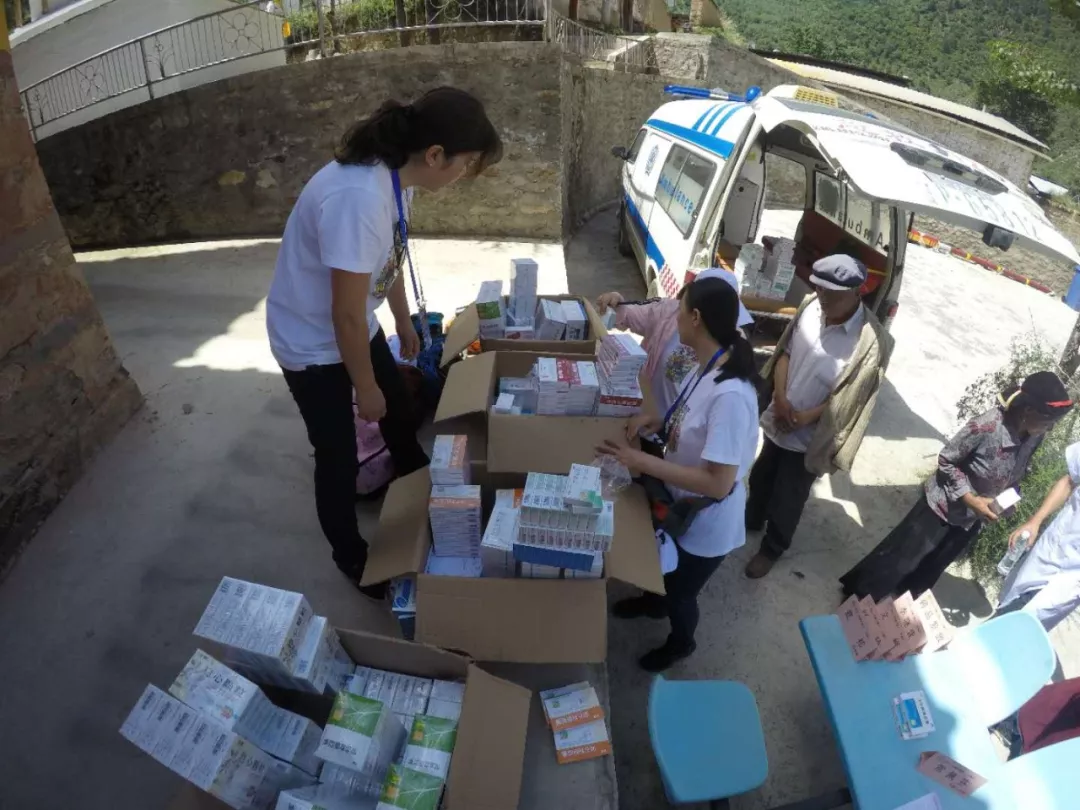
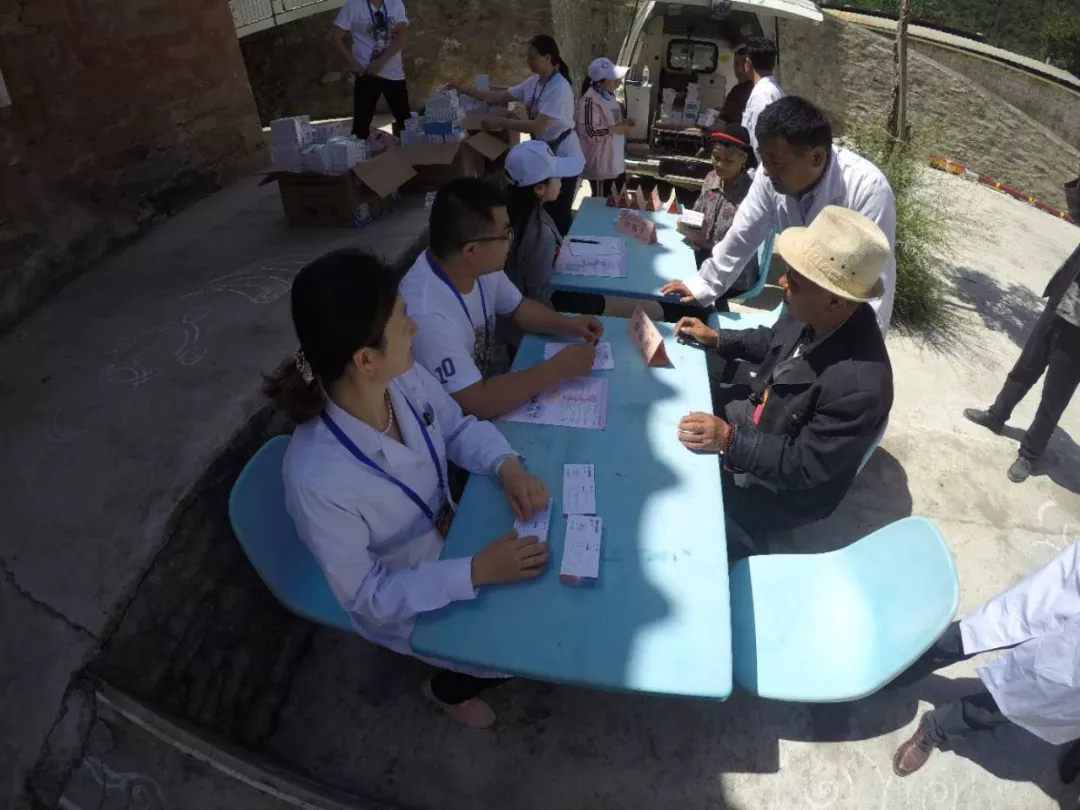
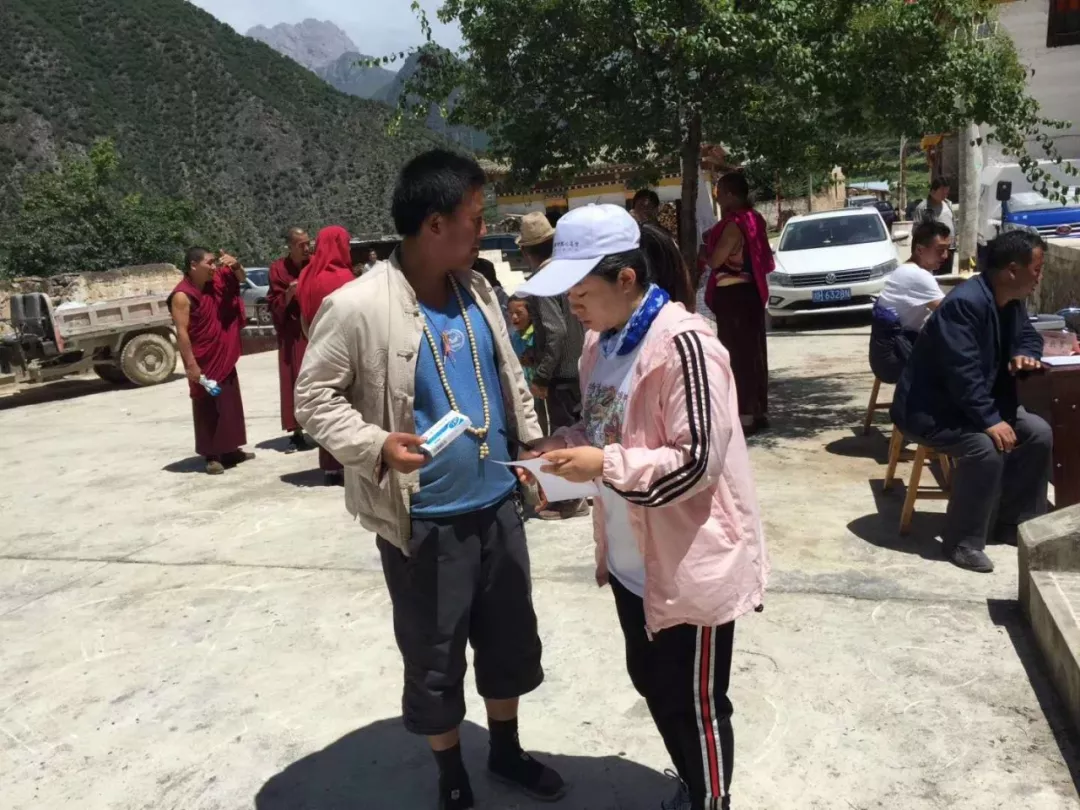
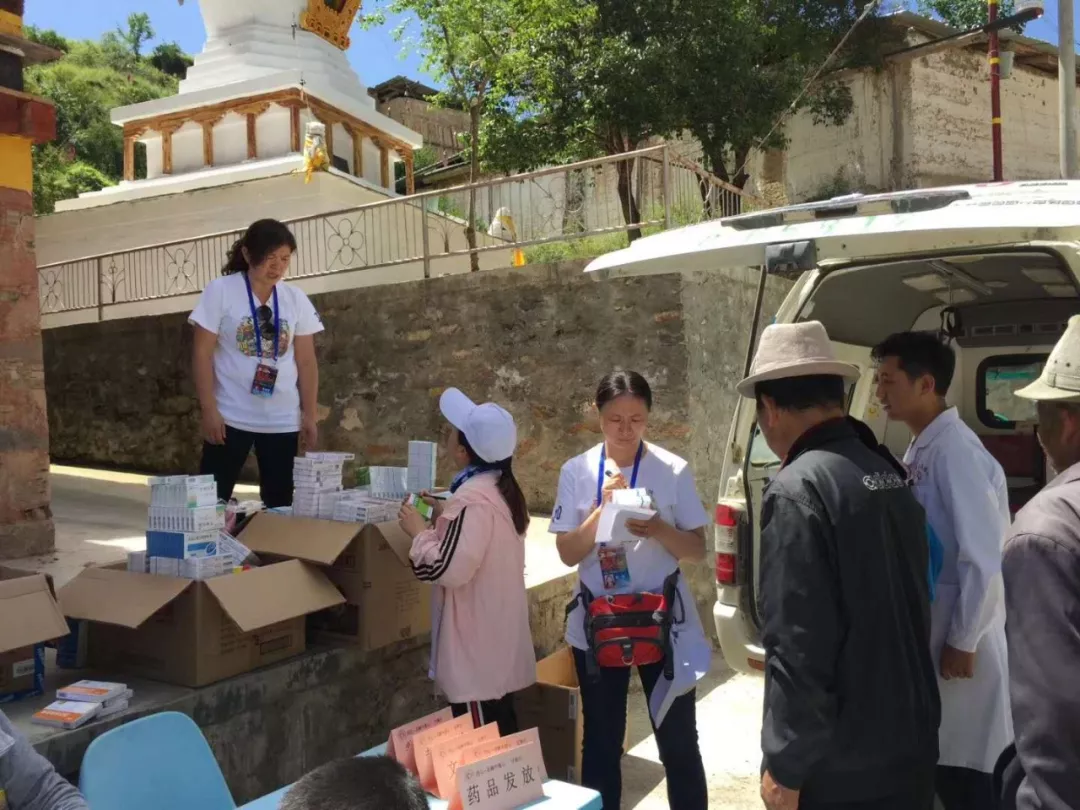
△On the Free Clinic Site
The local villagers are mostly Tibetans. After examination by the medical team, they mainly suffer from arthritis and low back and leg pain. This may be related to local customs and climate. Tibetan people have the religious custom of “walking around the mountain”. “Walking around the mountain” is a solemn and sacred religious activity ceremony prevalent in Tibet and other areas. It is a way for Tibetans to express piety. When they are walking around the mountain, walk or kowtow all the way around the holy mountain for one or more rounds. According to local Tibetans, people who walk around the mountain for a long time only go down for 1-2 times a year, and the rest of the time is on the mountain. Throughout the year, no matter how bad the weather is, “walking around the mountain” will not stop in the lives of Tibetans. For many years, the villagers’ knees and back are damaged. Due to the lack of medical conditions, the villagers are mostly tolerant and ignore the pain.
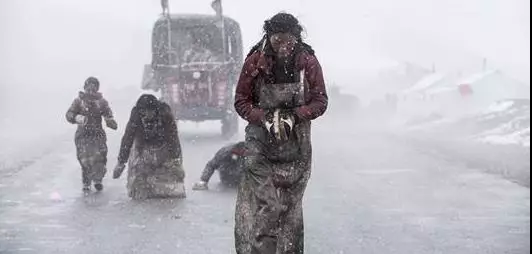
△Kangrinboqe stills
Due to limited medical conditions, local villagers lack health and self-care awareness. Therefore, during the diagnosis and treatment process, the medical team also popularized health knowledge for the villagers and taught them how to do physical care in bad weather. This is a very important part during the free clinic. In this free clinic, in addition to bringing medicines to the local area, the medical team also brought medical books and health brochures to local health centers, and trained doctors and nurses in local health centers with basic medical knowledge, such as correct measurement of blood pressure, detailed method of physical examination, reading of ECG and B-ultrasound, etc. Doctors from the medical team and the local hospital had left contact information for remote consultation through WeChat if necessary.
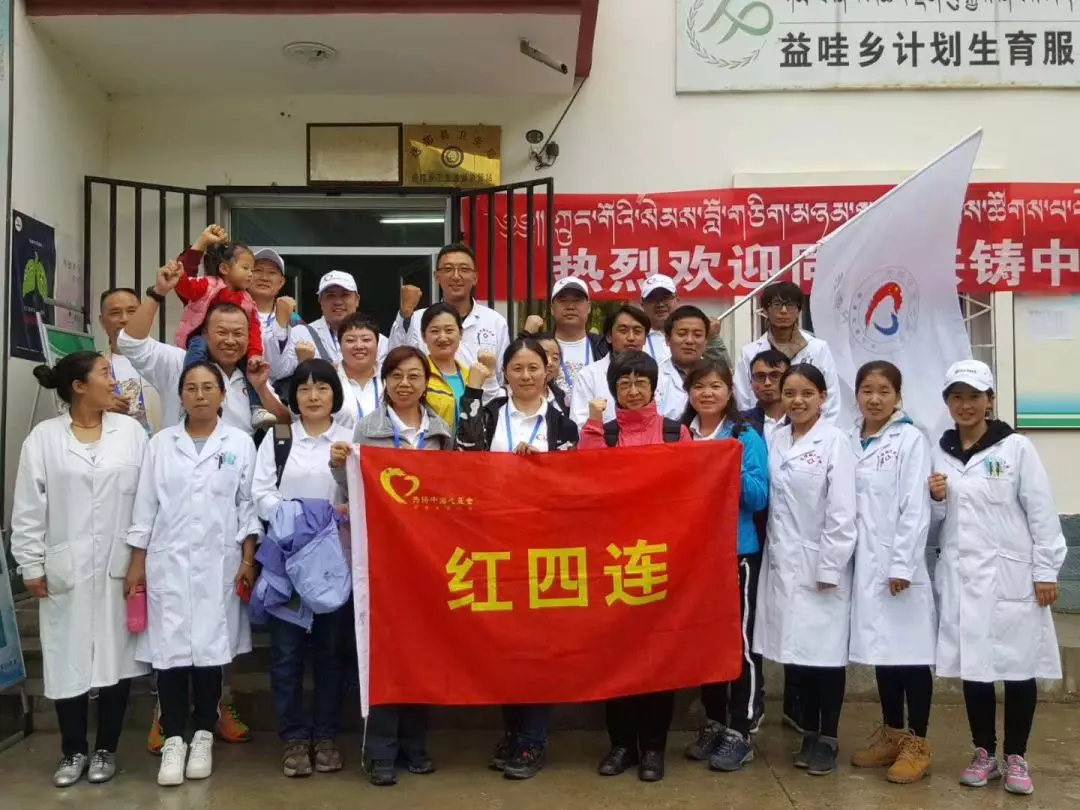
△Group Photo of Medical Team and Doctors in Local Health Centers
Han Jinchao told Jiankanghui that “I am most impressed by the fact that we drove with the doctors of the local hospitals to the depths of the mountains to visit the poor and to follow up the child who was after the operation of congenital heart disease(CHD). The poor household we visited was the old branch secretary. The old branch secretary and his wife lived in the mountain. The road to the mountain was tortuous. This road could only be passed by a van. We were uninterested in the beauty of the road and very nervous and dared not look back the road we went. When we arrived at the old branch secretary’s home, we learned that he had undergone surgery for esophageal cancer and needed long-term medication after the operation. The old branch secretary and his wife were old, and it was too difficult for them to go down the mountain. The medicines needed in daily life were brought by the comrades in the hospital. The wife of the old branch secretary had sequelae of cerebral infarction and mental retardation, and the family was extremely difficult. Seeing this situation, in addition to putting down the rice, noodles and oil brought to the old branch secretary, we temporarily decided to sign the two-year support agreement with the old branch secretary, hoping to provide assistance to the future life of his family.
“After visiting the old branch secretary, on the way back, we followed up a child who had undergone congenital heart disease surgery. The child recovered very well after surgery. The accompanying cardiologist conducted a detailed examination of her and the child has fully recovered. The children’s parents were very enthusiastic about us. The child told the medical team that when she grew up, she would also be a cardiovascular doctor”, Han Jinchao told Jiankanghui.
Zhao Ling, another pharmacist at Beijing Royal Integrative Medicine Hospital who went with the medical team, also told her story to Jiankanghui. In Diebu, she and Dr. Weng Qi visited two poor households. Here’s what happened to the visit:
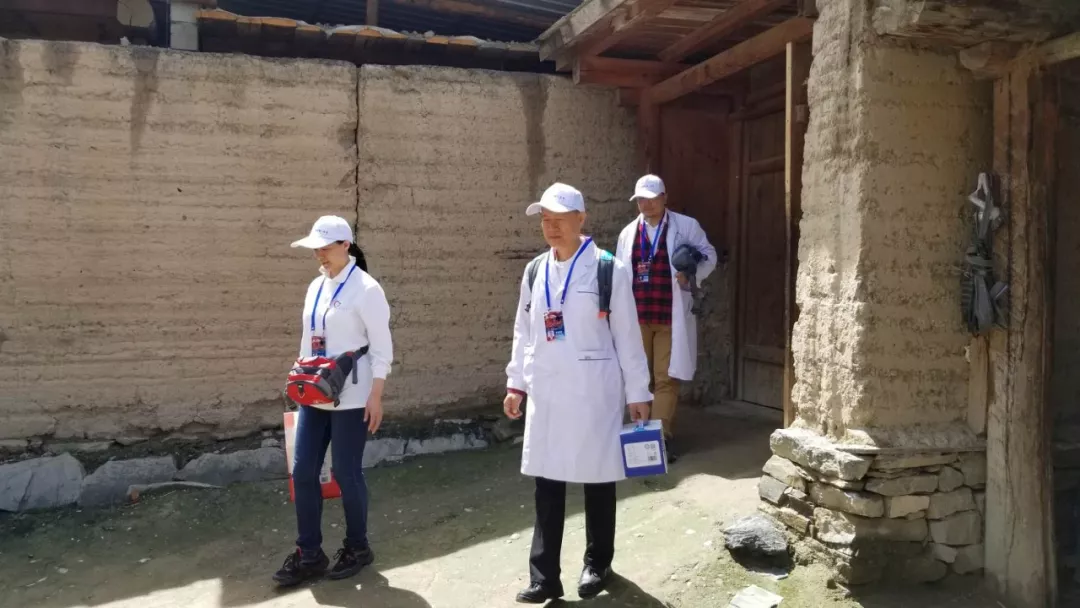
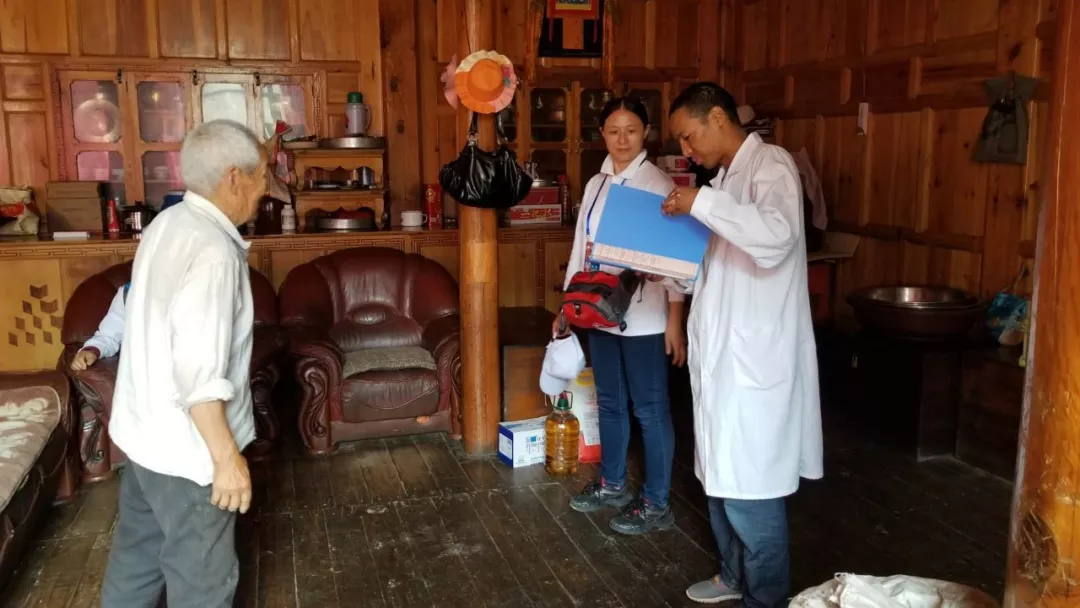
△In the first poor household, Dr. Zhao brought gifts and medicine for the poor old people.
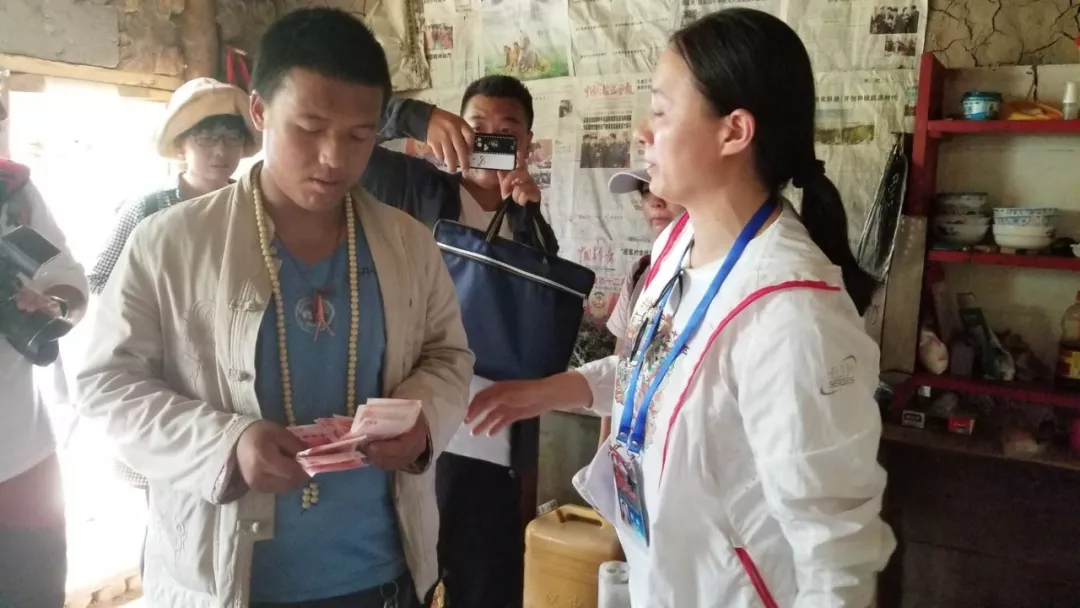
△The boy was an orphan. His father died in an accident and his mother immediately remarried. When the child was 15 years old, he was schizophrenic and lived alone in a small riverside lodge. Dr. Zhao told Jiankanghui that she and Weng Qi signed a two-year supply of daily necessities for this orphan.
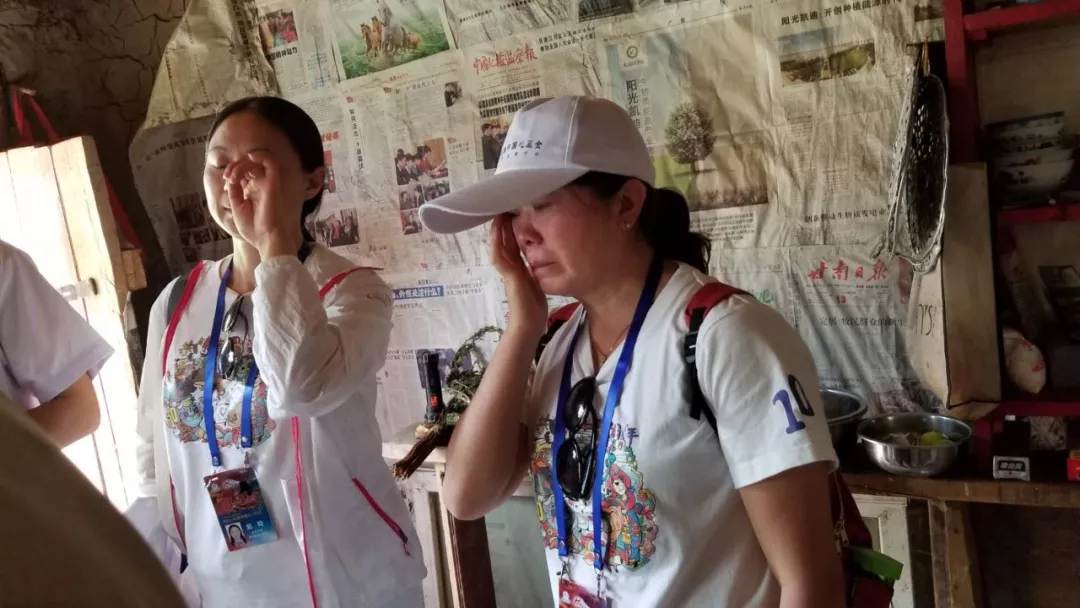
△When Zhao Ling and Weng Qi the situation of the children, tears fell down and they immediately decided to help.
At the end of the last day, we looked out of the window on the returning car. The rain was still falling. The village behind me was getting farther and farther, and finally disappeared into sight. The mountains in the distance were so quiet in the night. When we thought of appreciating the beauty of the scene of Diebu, it was too late, everything around has merged with the night. The medical team left, but the villagers’ simplicity, plain, piety, and the shock and moving they brought to each medical team member had always remained in the heart of everyone.
This year, it is the eighth year that Beijing Royal Integrative Medicine Hospital insists on free clinic. In order to maintain the eternal belief in the heart, the hospital will continue to do this in the future.
(Materials on free clinic in Gannan were supplied by Han Jinchao and Zhao Ling. Materials on the villagers’ customs in the free clinic site of Tibetan area were supplied by Chen Hui. Materials were collected by Wu Yongdi.)
